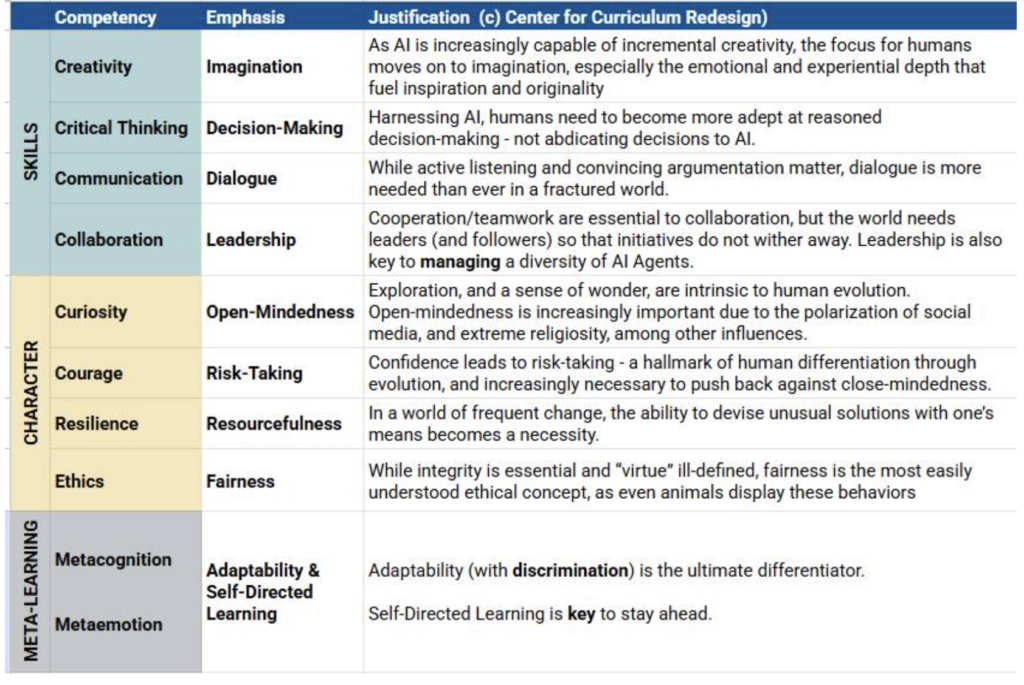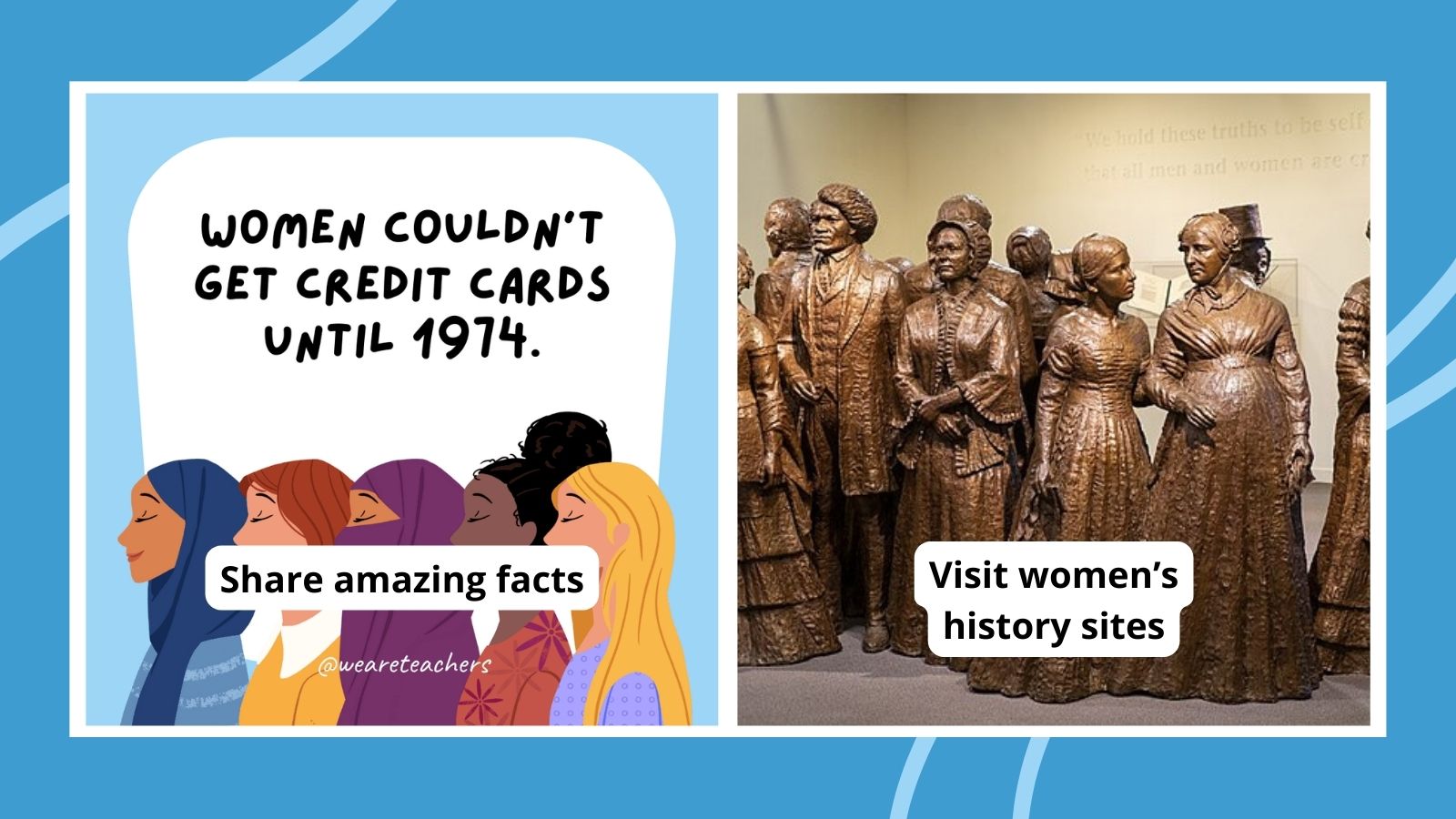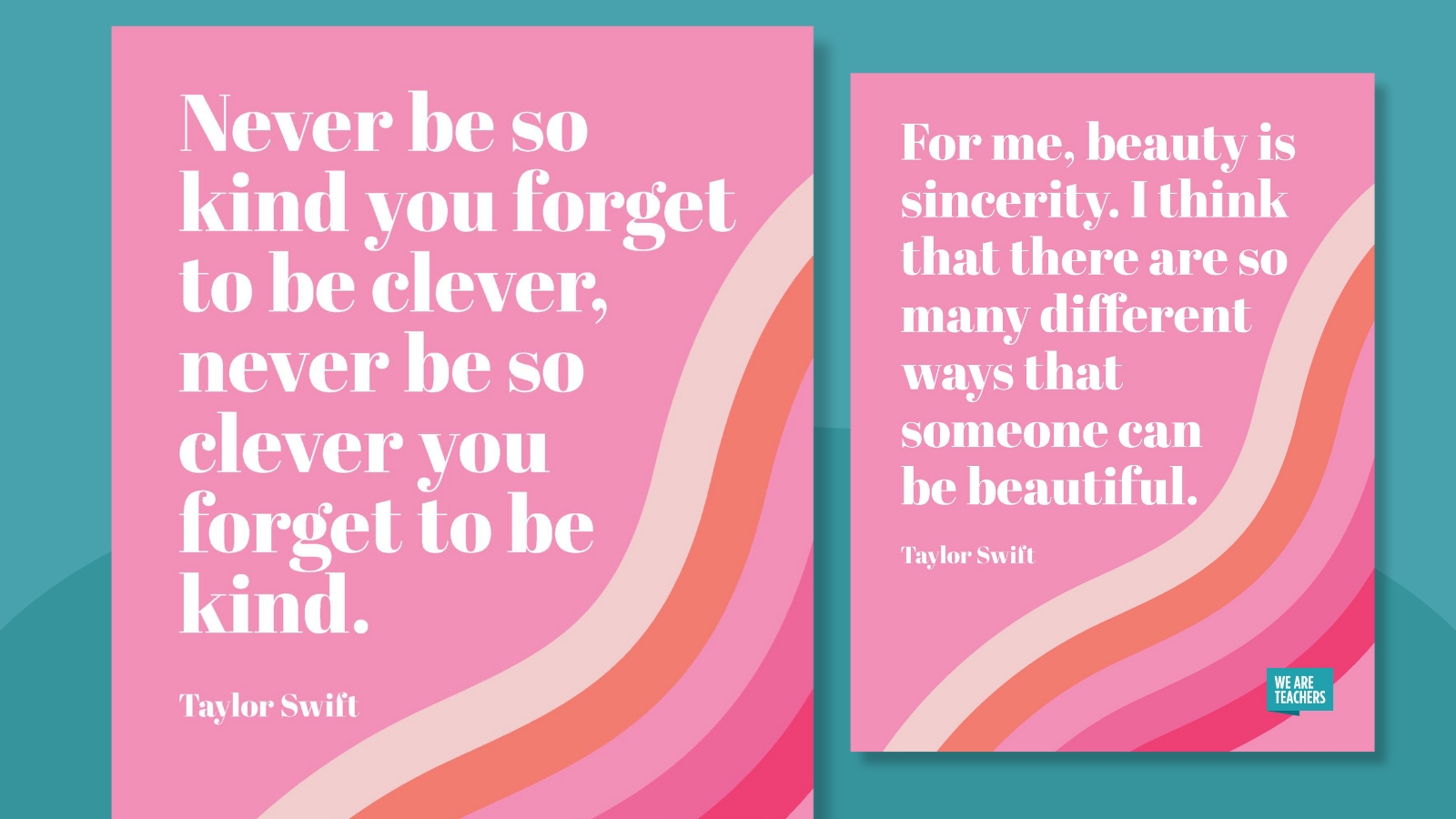“The current crisis…is not just a crisis of individuals, governments, or social institutions; it is a transition of planetary dimensions. As individuals, as a society, as a civilization, and as a planetary ecosystem, we are reaching the turning point.” Fritjof Capra, The Turning Point, 1982
“Get AI to work for you or be prepared to work for AI,” Seth Godin to Tim Ferriss, 2025
It is likely that this is the year co-intelligence becomes ubiquitous in work, learning, and life. With the deployment of operators, agents, assistants, bots, and boyfriends, we must ask ourselves the question: What is the new mission of education? What should learners know and be able to do?
Superpowers: Curiosity and Agency
With job dislocations coming in the next few years and a global search for which tasks and roles are distinctly human, some skills and dispositions have had a massive bump in importance. “AI systems have got so useful that the thing that will set humans apart from one another is not specific hard-won skills for utilizing AI systems, but rather just having a high level of curiosity and agency,” said leading AI observer Jack Clark, adding “…in the era where these AI systems are true ‘everything machines’, people will out-compete one another by being increasingly bold and agentic (pun intended!) in how they use these systems, rather than in developing specific technical skills to interface with the systems.” He added “the winners will be those people who have exercised a whole bunch of curiosity with the AI systems available to them[…[ The only hard limit is me – I need to ‘want’ something and be willing to be curious in seeing how much the AI can help me in doing that.”
Clark channels Reid Hoffman’s sense of what’s possible, “If we get this right, everyone will be able to achieve more and exercise more of their own agency over their own intellectual world.” Hoffman’s new book SuperAgency “focuses on AI’s immense potential to increase individual agency and create better outcomes for society as a whole.” Agency, according to Hoffman, is “the capacity to make your own choices, act independently, and thus exert influence over your life.” Agency is both “What AI enables you to do,” and “The stance you take.”
Hoffman imagines AI empowering people to navigate complex systems and achieve their goals. AI is amplification intelligence, it rewards and develops human agency.
In Education for the Age of AI, Charles Fadel says, “Agency is a vital component for deep, intrinsic motivation and effective learning. Traditional education models often place students in passive roles, but AI tools can transform them into active participants by tailoring learning experiences according to their needs, preferences, and pace. For instance, an AI-driven learning platform can offer students choices in how they want to approach a topic, which resources they’d like to explore, or even which assessments they’d like to tackle, based on their past performances and future goals. This personalization empowers students to take charge of their learning, making decisions that suit their needs and interests, increasing their sense of agency. As they interact with AI systems that adapt and respond to their inputs, students begin to recognize the value of their choices and actions in shaping their educational outcomes.”
Agency and curiosity unlock the power of AI, enabling what Josh Bersin calls the SuperWorker: ”an individual who uses AI to dramatically enhance their productivity, performance, and creativity.”
Michelle Culver and Tiffany Taylor said, “By harnessing the intelligent assistance, personalization, and real-time interactions of generative AI, students are independently following their curiosities and learning new skills more easily than ever before.”
Superpower: Problem Finding
For three decades, critical thinking and problem solving have been advanced as priority competencies in nearly every portrait of a graduate. What’s new is the importance of problem finding—the knowledge and judgment to spot a problem worth working on. This kind of problem can be identified through the Ikigai bullseye—the intersection of interests, skills, needs and business models.
We may be the most familiar with opportunity recognition as the critical first step in an entrepreneurial mindset, as stated by The Kern Foundation. Similarly, the first step in The Solutionary Way is to “Identify the problem you want to solve” followed by investigate, innovate, and implement. Empathize and Define are the first two steps in Design Thinking and Jon Alexander, author of Citizens says that one of the most overlooked parts of civic engagement is “finding a problem big enough that it benefits working with others to solve.”
Adam Grant said, “We’re gonna stop valuing ability and start valuing agility in humans.” Sam Altman replied, “Figuring out what questions to ask will be more important than figuring out the answer.”
Superpower: AI Management
Last year, AI Literacy was the priority. While still a critical skill to develop, this year has added AI Management to the docket. “AI skills are basically the skills of good managers – delegation, clear explanations, getting a sense of individual strengths & weaknesses, division of labor, project management, clear feedback,” says Ethan Mollick. Responding to Mollick, Sabba Quidwai noted the importance of Intellectual Curiosity and AI Delegation as people make the mindset shift from “tools to teammates.”
These comments align with what was recently published in the Microsoft Future of Work report which additionally suggested that “Analyzing and integrating may become more important skills than searching and creating.” And, “With more generated text available, the skills of research, conceptualization, planning, prompting and editing may take on more importance as LLMs do the first round of production (e.g., Mollick 2023). Skills not directly related to content production, such as leading, dealing with critical social situations, navigating interpersonal trust issues, and demonstrating emotional intelligence, may all be more valued in the workplace.”
In Education for the Age of AI, Charles Fadel outlines a Modern Emphasis that includes leadership, which is “key to managing a diversity of AI Agents.”

Fadel said, “Entrepreneurship is the job of the future.” His Modern Emphasis supports this prediction with a focus on imagination, adaptability, and risk taking.
Conclusion
As we navigate this transition to AI agents and operators, our learning goals must evolve to reflect the new realities and opportunities. By prioritizing curiosity, agency, problem-finding, and AI management, we can empower learners to thrive in an increasingly AI-driven world. The future of education lies in fostering these superpowers, ensuring that individuals are not just equipped to work with AI, but to lead and innovate in partnership with it.
The post How AI is Changing Learning Goals appeared first on Getting Smart.
Explores how AI is reshaping education, emphasizing curiosity, agency, and AI management as essential skills for future learning and work.
The post How AI is Changing Learning Goals appeared first on Getting Smart. Leadership, New Pathways, Personalized Learning, accelerated pathways, agency, Artificial Intelligence, credentials, future of learning Getting Smart









